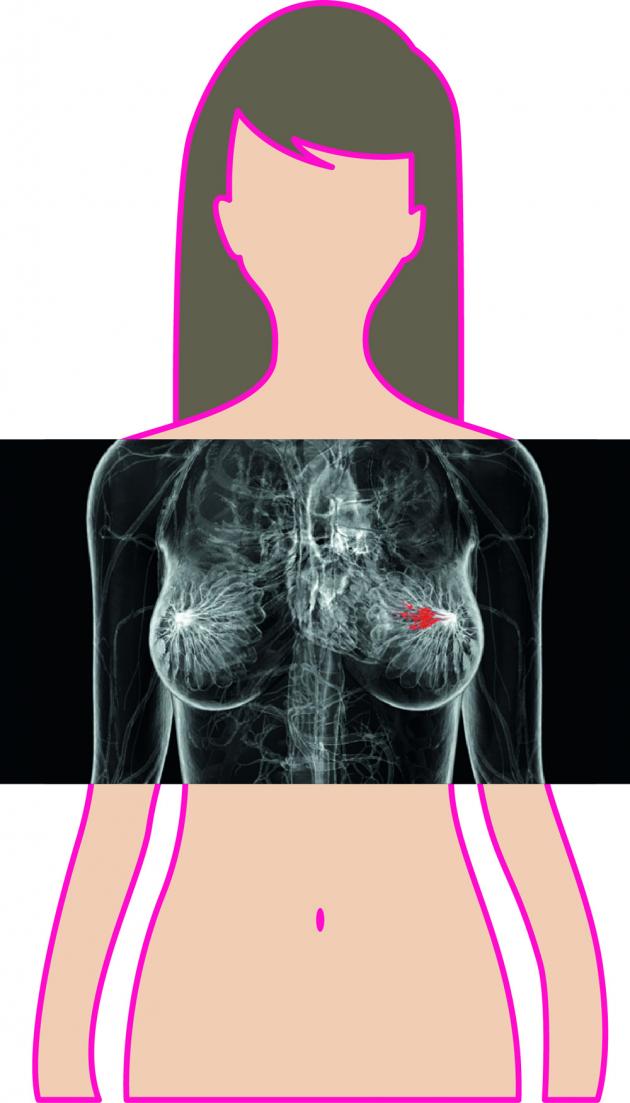When the tumour is the target

A new treatment introduced by Siriraj Hospital can cure early-stage breast cancer through minor surgery and one-time radiation
Despite greatly improved dissemination of information about breast cancer and the chances of full recovery if diagnosis is made early enough, the disease remains the leading cause of cancer death among women in modern-day Thailand.
Studies have shown that more women are aware of the importance of self-examination but still put off consulting a doctor if they find a lump, many of them citing fear of what the treatment will entail.
Today that’s no longer an excuse as Siriraj Hospital has introduced an innovative and highly effective treatment for breast cancer that involves one surgical procedure to remove the lump followed by a one-off radiation treatment. Providing the cancer is caught in its early stages, this does away with the need for a mastectomy, weeks of treatment and best still, ensures that the cancer is unlike to return.
The new treatment was introduced recently by Siriraj Hospital’s Clinical Professor Udom Kachintorn and members of the Head, Neck, and Breast Surgery team, Professor Ponchai O-Chareonrat, Associated Professor Adune Ratanawichtrasin, Associated Professor Suebwong Chuthapisith, and Kullathorn Thephamongkol from the Radiation Therapy Clinic. Yawaman Metapirak, a patient who has recently undergone the treatment was also present.
The latest statistics from Siriraj Cancer Centre reveal that more than 1,000 new patients receive breast cancer treatment annually. Despite life-saving treatment advances, procedures usually involve many complex fields including surgery, radiation therapy and chemotherapy.
“Surgery involves either removing the whole breast or just the cancer cells,” Dr Adune notes. “However, just removing the cells increases the risk of the disease returning and so the patient has to make 25 to 30 trips to the hospital for radiation over five to six weeks.
“The new technology means that the patient will undergo just one operation and a one-off radiation treatment in the operating theatre,” he says.
Fifty patients have been treatment this way over the past year, adds Dr Suebwong, and the results have been excellent, with only one person diagnosed with repeat disease.
“Obviously this treatment isn’t suited to every breast cancer patient. It’s ideal for women over 55 years old, in the very early stages of breast cancer with a tumour that measures less than two centimetres and has not spread to the lymph gland. There must also be an oestrogen receptor in the cancer cell,” he says.
“One of the biggest advantages to one-time radiation treatment after surgery is the reduction in the number of outer radiation therapy treatments, which can be as high as 30, and also that it targets the cancer cell directly, increasing the chance of total cure. Studies over the last 20 years show that repeat tumours tend to occur very close to the previous cancer. Targeted radiation therapy after surgery decreases the quantity of radiation particles that will affect normal cells as well as reduces the risks of other side effects to the lungs, heart and skin,” says Dr Kullathorn.
“This treatment is new to Thailand but is not a new discovery. Satisfactory results in terms of medical treatment, patient psychology and living condition after surgery have been demonstrated in Italy and the UK for the past 10 years. Research and development studies by the European Institute of Oncology and other cancer institutes in the UK over a four-year period shows the rate of repeated cancer at one per cent and a major reduction in side effects,” Dr Suebwong adds.
Breast-cancer patient Yawaman says she felt terrible when a mammogram revealed her tumour.
“When my doctor recommended the surgery and one-time radiation therapy, I was doubtful it would work. But I spent just one night in hospital and was able to get straight back to work. I was lucky that the mammogram picked up the disease early and so fortunate to be cured with new treatment. There’s been no loss of femininity at all,” she notes.
At present, both Siriraj and Chulalongkorn hospitals are offering this new treatment, though there are
variations in the medical techniques and equipment.
“Research into cancer cells and treatment is continuing throughout the world,” says Dr Adune.
“The new techniques of the future come under the heading ‘targeted therapy’. Thanks to new technology, we have very a clear idea of the cellular level of cancer cells. We know that some cancer cells have a receptor on the membrane that is different from normal cells. Researchers are working on weapons such as a radiation particle or chemotherapy agent attached to the receptor. This type of therapy will allow the tumour to receive the full effect of radiation or chemotherapy treatment but not the normal cells. We know different types of cancer cells have different types of receptor so we can target any type of cancer. This is something we can to look forward to in the future,” he says.
RELATED





